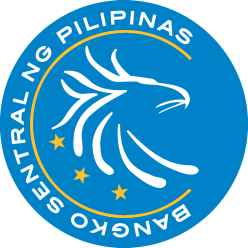GENERAL GOVERNANCE PRINCIPLES AND STANDARDS ON RELATIONSHIPS BETWEEN BANKS AND THEIR RELATED NON-GOVERNMENTAL ORGANIZATIONS (NGOs)/FOUNDATIONS
(Appendix to Sec. 341 on Definition of Related Interest)
General Principles:
1. Microfinance programs/operations of banks shall be supervised and administered separately from the microfinance programs/operations of related NGOs/foundations;
2. All transactions between banks and their related NGOs/foundations shall be in the ordinary course of business and upon terms not less favorable to the bank than those offered to other parties; and
3. Bank board of directors and management must at all times adhere to the three pillars of corporate governance, namely: fairness, accountability and transparency in all of its dealings with related NGOs/foundations.
Standards
1. Microfinance programs/operations of banks and their related NGOs/foundations should have separate organizational structure, manual of operations, management information system, etc.;
2. The board of directors should formulate policies that shall govern the dealings of the bank with its related NGO/ foundation, e.g., prohibiting and/or limiting activities and transactions that could result in conflict of interests and providing preferential treatment to the related NGO/foundation to the disadvantage of the bank. Also, the board must ensure that senior management implements the aforementioned policies by requiring the submission of periodic reports covering transactions with related NGO/foundation;
3. Formal agreements/contracts should govern the business relationships of banks and their related NGO/foundations covering both their overall/general relationship and specific transactions such as: (i) the purchase of bank of NGO/foundation’s loan portfolio, (ii) the collection of loan payments (from NGO/ foundation’s borrowers) by the bank and (iii) the payment for trainings/seminars given by the NGO/foundation;
Terms and conditions of the formal agreements/contracts shall include, among other things, the following:
Purchase of loan receivables of NGO/ foundation
a. Criteria in selecting loan accounts;
b. Purchase price including premiums, if any;
c. Bank recourse in case of non-payment by borrowers;
Collection of loan payments from borrowers of NGO/foundation
a. Compensation for utilizing bank resources, e.g. employees, transportation and equipment, etc.;
b. Mode of payment by the NGO/ foundation;
Conduct of microfinance trainings/ seminars by BGO/foundation
a. Lecturers shall have adequate background and/or experience in microfinance operations;
b. Training syllabus which include subjects on client selection, credit and cash flows analyses, delinquency management, etc.
4. Any loan, other credit accommodation or guarantee in any form whatsoever granted to a related NGO/foundation is subject to existing rules on DOSRI loans.
However such loan, other credit accommodation or guarantee shall be excluded in determining compliance with the Individual Ceiling on DOSRI loans: Provided, That such loan, other credit accommodation or guarantee is secured by the deposit of clients of the borrowing NGO/ foundation which are maintained with the lending bank: Provided further, That all of the following conditions are met:
a. Existing regulations on the opening of deposit accounts and other deposit transactions shall apply except when specifically stated otherwise;
b. Depositors shall issue waivers of confidentiality of their deposits and enter hold-out agreements with the lending bank;
c. Interest rates on such deposits shall not exceed to that of similar type of deposit accounts;
d. Collected but undeposited capital build-up funds from clients shall be recorded in a temporary liability account in the books of related NGOs/foundations and shall be deposited with the related bank not later than fifteen (15) calendar days from date of collection;
e. Total loans, other credit accommodations and guarantees granted to the related NGO/foundation shall not exceed, at any time, the total deposits owned by its clients; and
f. That the NGO/foundation shall consider as payments to the clients’ obligations any deposit used by the lending bank to settle any unpaid obligation(s) of the NGO/foundation.
5. Bank directors and management are reminded to perform their duties and responsibilities in accordance with the standards of corporate governance. Under Section 132 duties and responsibilities of bank directors include, among other, the following:
a. To conduct fair business transactions with the bank;
b. To act honestly and in good faith, with loyalty and in the best interest of the institution;
c. To devote time and attention necessary to properly discharge their duties and responsibilities;
d. To act judiciously; and
e. To observe confidentiality.
Section 2. Requirements
1. To include in the biographical data of directors and officers their involvement, in any capacity, in the microfinance operations of related microfinance NGOs/ foundations;
2. Require the approval of the board of directors of all related party transactions and that the same be covered by notarized agreements. It is also understood that all loan transactions with related NGOs/ foundations shall comply with the existing requirements on DOSRI loans; and
3. Submit a copy of the said agreement/contract to the appropriate Bangko Sentral department/group for review and evaluation.
(Circular No. 969 dated 22 August 2017)
